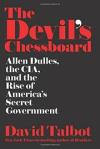 Now that what used to be sneered at as vanity publishing has been embraced by the mainstream, one thing that has been lost in all of the discussions that have gone before is that there are other options besides the two that have been the center of attention for all this time. By that, I refer to a fair number of digital presses that operate using the best elements of traditional publishing while adjusting their processes and their relationships with authors so that the end result is to everyone’s benefit.
Now that what used to be sneered at as vanity publishing has been embraced by the mainstream, one thing that has been lost in all of the discussions that have gone before is that there are other options besides the two that have been the center of attention for all this time. By that, I refer to a fair number of digital presses that operate using the best elements of traditional publishing while adjusting their processes and their relationships with authors so that the end result is to everyone’s benefit.
However, all too often, writers who are interested in doing all the work of publishing themselves but who, for whatever reason, aren’t all that interested in seeking the attention of the Big Five have some misconceptions about how the digital publishing industry does business. Some of this is in the form of myths I will attempt to clear up.
If you think you might be interested in working with one of the small presses, look for the Digital Publishers Association page on Facebook.
1. The publisher is not your enemy. To listen to some people, many of them self-published authors who either gave up after their book was rejected over and over and/or decided they’d make more money doing it themselves, publishers are all crooks who steal the bulk of the sales money and are determined to screw authors any way they can. This is a lie. Not that there aren’t crooked “publishers,” or (more often) people who thought they knew enough to start calling themselves publishers but end up tanking for lack of business skills. However, the publishers I know are in the business because they love books and want to help authors get published.
2. The publisher is not your friend. Since the early days of the independent ebook industry, circa 1996, it was repeated frequently how much more author-friendly they were than the major publishers. This mantra has led to a belief that a small press, whether print or ebook or both, is willing to let an author dictate such things as cover art and editing. Wrong. Publishing is a business, and the publisher is the final authority with regard to how that business operates. If you can’t accept that, then self-publishing is likely a better option.
3. Small presses are desperate for manuscripts, so you can ignore their guidelines. Oh, lordy, I wish. With the exception of ebook-only presses with large monthly publishing schedules, small presses almost always have more queries for submission than they can deal with. They also are nearly always run by a handful of people—sometimes only one person—so they are going to be particularly fussy about having those guidelines followed.
4. Small presses are more willing to accept first-time authors. True. However, that doesn’t mean you can type “the end” and send them your first draft. Or worse, send them the first three chapters of a work in progress. What—do you think they’re going to provide you with a free critique or editing service. Dream on. The standards at small presses are no different from the ones you would apply before approaching an agent or a traditional house. They expect well-written, professionally prepared manuscripts. That means either finding a good critique group or paying someone qualified to edit your work. Your high school English teacher may do a bang-up job correcting your spelling and grammar and punctuation, but unless he or she also teaches creative writing—and maybe not even then—he or she isn’t qualified to edit a manuscript.
5. You don’t need to know grammar and such to be a writer. Right. And you don’t need to go to medical school to be a doctor or take flying lessons to be a pilot. I’m constantly amazed at the number of people who think they can be the next best-selling author without ever mastering the tools and rules of the writing trade. Because it is a trade, people. It’s a job that requires very specific skills that must be learned the same way a musician learns to play the piano—practice. This bit of nonsense is usually accompanied by the belief that as long as the writer has a great story idea, the publisher will take care of editing it into shape. If I ever lay hands on the moron responsible for that misinformation, I will squash him/her between volumes of the Encyclopedia Britannica.
I may add to this list as life progresses, but based on my discussions with other publishers these are the top five. That is, the ones that will get your query or submission deleted or tossed without hesitation. Ignore them at your peril.
 a classic in the area of media bias. Almost thirty years ago, Chomsky and Herbert identified, and then found ample evidence to support, a clear pattern of biased reporting in the US mainstream media. Step by step, they reveal how the media and the US government carefully limited and/or slanted information released to the public to ensure a specific narrative.
a classic in the area of media bias. Almost thirty years ago, Chomsky and Herbert identified, and then found ample evidence to support, a clear pattern of biased reporting in the US mainstream media. Step by step, they reveal how the media and the US government carefully limited and/or slanted information released to the public to ensure a specific narrative.
 I have to apologize to Libby again. I’m in a group she started that gets dibs on her new stuff so we can write and post reviews as soon as the book or novella or whatever comes out.
I have to apologize to Libby again. I’m in a group she started that gets dibs on her new stuff so we can write and post reviews as soon as the book or novella or whatever comes out.


